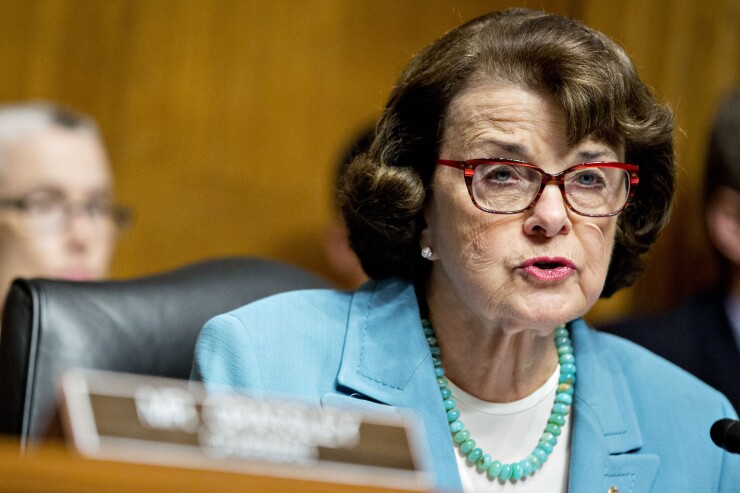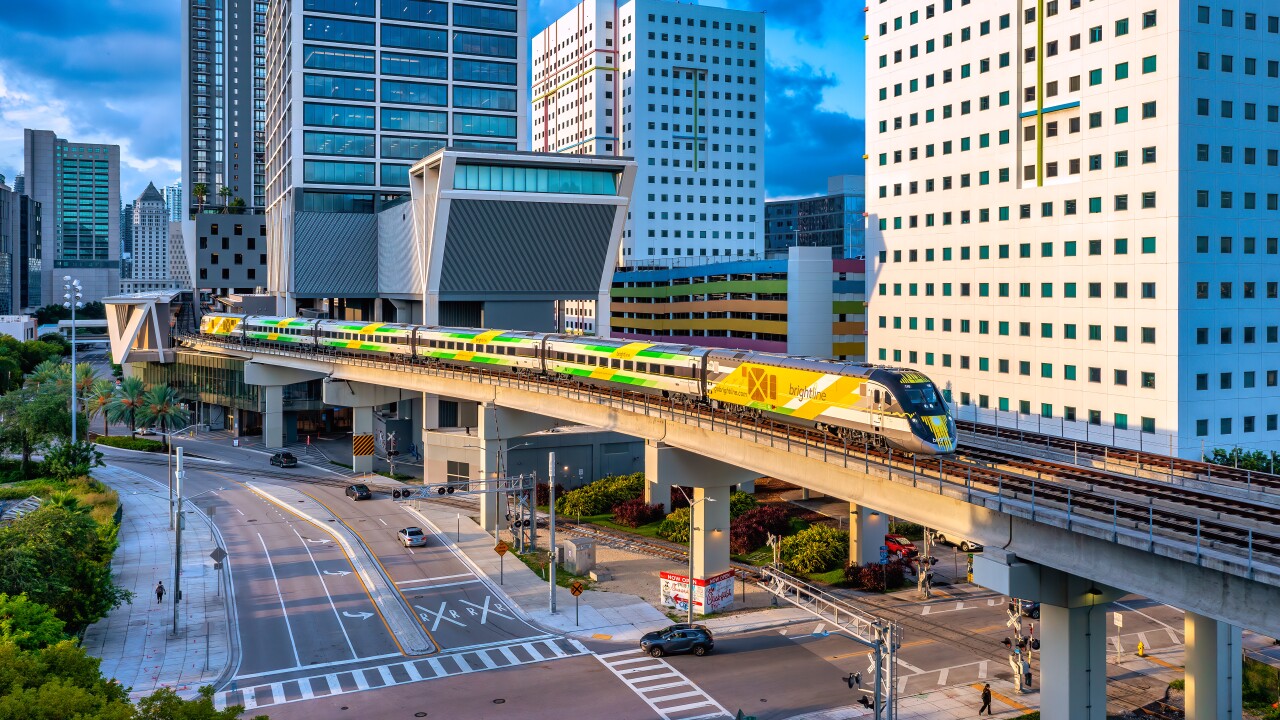LOS ANGELES — California’s two senators want Transportation Secretary Elaine Chao to release funds for a San Francisco-area commuter rail project, saying Congress included funding in the federal budget.
A $647 million federal full funding grant agreement to help convert the Caltrain system to electric trains, approved by the Obama Administration, was withheld after President Trump took office, with the Federal Transit Administration informing Caltrain that it was “deferring a decision.”
The San Jose-to-San Francisco project is designed to also host high-speed-rail trains on California’s planned Los Angeles area to San Francisco bullet train route.
“We are writing to reiterate our strong support for immediate approval of the pending grant agreement for the Bay Area’s commuter rail service, Caltrain,” Dianne Feinstein and Kamala Harris wrote in a

The recent congressional agreement to fund the federal government through September includes $100 million for the Caltrain project.
The $1.98 billion Caltrain Peninsula Corridor Electrification project has been on hold since February awaiting Chao’s approval. The price tag includes high-speed-rail stations in San Jose and San Francisco and the cost for the electrified rail.
“Now that Congress has reaffirmed, on a bipartisan basis, its commitment to the project by specifically providing $100 million, we ask that you allow the project to proceed without further delay,” Feinstein and Harris wrote.
Chao has not responded yet to the senator’s letter, according to a Department of Transportation spokeswoman.
In March, the Office of Management and Budget proposed a budget blueprint that would stop funding for Caltrain and any other new transit capital investment grants in fiscal years 2017 and 2018. But Congress rejected that approach.
Trump signed a Consolidated Appropriations Act into law Friday that provides $2.4 billion for the Capital Investment Grants program including $100 million for Caltrain.
“This specific funding lays to rest any question about whether Congress supports this much needed, shovel-ready infrastructure project,” Feinstein and Harris wrote. “Caltrain waits only for the Department of Transportation’s final approval.”
Approval of the 2017 budget and execution of the FTA grant agreement would make over 25% of Caltrain’s total $647 million federal funding request immediately available to start construction.
Caltrain Executive Director Jim Hartnett called inclusion of the $100 million in funding for Caltrain’s electrification project a promising sign that “the efforts of our Congressional delegation and the employers and riders who have joined us in advocating for this project are having an impact.”
The senators called approving the federal grant agreement "a necessary and important demonstration of the Administration's commitment to infrastructure investment."
The California High-Speed Rail Authority’s top executive, Jeff Morales, announced his resignation in April.
The authority received good news Monday, when a Sacramento County Superior Court judge tentatively rejected an effort by opponents to block the use of $1.2 billion in taxable general obligation bonds recently sold to pay for rail work in the Central Valley, though opponents say they will appeal.





